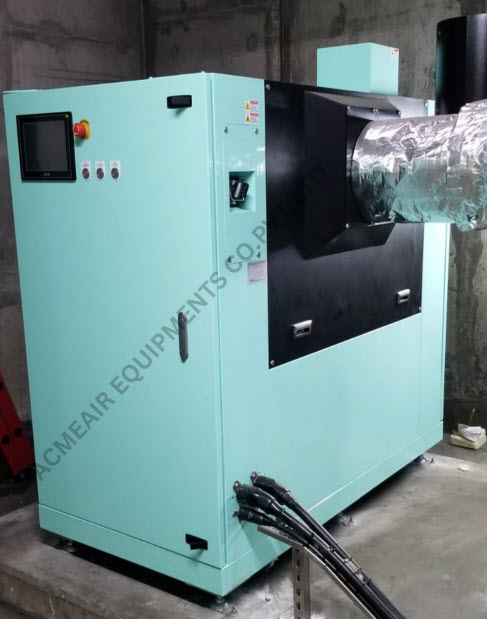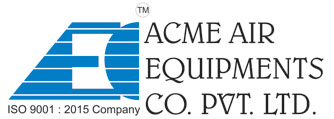Table of Contents
South Africa’s industrial landscape is undergoing a significant transformation. With a growing emphasis on energy efficiency, reduced operational costs and high-performance machinery, the demand for advanced air movement systems is on the rise. Among these, turbo blowers-especially high-speed turbo blowers-are emerging as critical components in a range of industrial applications, from wastewater treatment and food processing to construction and energy generation.
As cities like Johannesburg, Cape Town, Durban, Port Elizabeth, Pretoria and Bloemfontein continue to experience industrial growth, businesses are increasingly turning to turbo blower manufacturer for solutions that offer reliability, reduced maintenance and operational efficiency. This article explores why turbo blowers are gaining traction across South Africa, highlighting their applications, performance benefits and role in supporting the country’s evolving industrial needs.
Turbo Blower Technology and Its Industrial Significance
What are Turbo Blowers?
A turbo blower is a high-efficiency air delivery system that operates using dynamic compression through an impeller rotating at high speeds. Unlike traditional positive displacement blowers, turbo blowers utilize centrifugal force to generate compressed airflow, resulting in greater energy efficiency and lower noise levels.
High-speed turbo blowers, typically controlled by advanced variable frequency drives (VFDs), are engineered to deliver precise airflow and pressure control. Their oil-free and contactless design reduces wear, leading to longer service life and less downtime-an important factor in industries demanding 24/7 operation.
Key Benefits in South African Industries
- Energy Efficiency: With power costs rising in South Africa, especially in Gauteng and KwaZulu-Natal, turbo blowers offer significant energy savings over legacy blower technologies.
- Low Maintenance: The magnetic bearing and non-contact operation of high-speed turbo blowers reduce friction and eliminate the need for lubricants, cutting maintenance costs.
- Compact and Lightweight: These units take up less space, an advantage in urban manufacturing zones like Johannesburg and Pretoria where plant floor space is limited.
- Quiet Operation: Ideal for environments like food processing plants or medical manufacturing, especially in industrial areas of Cape Town and Port Elizabeth.
The Growing Role of Turbo Blowers in South African Manufacturing
Meeting the Demands of Modern Manufacturing
South Africa’s manufacturing sector is moving toward automation and efficiency. Whether it’s in steel production in Newcastle, food processing in Cape Town or automotive assembly in Port Elizabeth, manufacturers require air supply systems that are responsive, low-maintenance and scalable.
Turbo blowers meet these demands through advanced control capabilities and consistent performance. Manufacturers in Durban and Bloemfontein, for instance, are adopting high-speed turbo blowers for aeration in fermentation processes and cooling applications in chemical processing. The flexibility of these systems allows plants to adjust air supply according to operational load, ensuring energy is not wasted during low-demand periods.

Integration with Smart Manufacturing Systems
Modern turbo blowers are designed with intelligent monitoring systems that integrate seamlessly into Industry 4.0 environments. Facilities in Johannesburg and Pretoria are leveraging this smart functionality to track blower performance in real-time, predict maintenance needs and reduce unplanned outages.
This shift toward connected, data-driven systems in manufacturing has propelled the popularity of turbo blowers as key components in optimizing plant-wide efficiency and ensuring uptime.
Applications of Turbo Blowers in Energy and Wastewater Treatment
Power Generation and Energy Efficiency
With load-shedding and energy reliability challenges affecting operations in major South African cities, industries are focusing on energy optimization. In cities like Durban and Johannesburg, where industrial energy demand is high, turbo blowers are being installed in gas turbines and energy recovery systems to improve airflow control and combustion efficiency.
Turbo blower manufacturers in South Africa is also addressing the growing demand for blowers in renewable energy projects, where air systems are essential in processes like biogas treatment and air separation.
Wastewater Treatment and Environmental Compliance
Turbo blowers are becoming the preferred solution for municipal and industrial wastewater treatment plants across South Africa. In Cape Town and Pretoria, treatment facilities are upgrading aging mechanical blowers with high-speed turbo blowers to improve aeration efficiency in biological reactors.
These blowers ensure optimal dissolved oxygen levels with minimal energy use, supporting compliance with tightening environmental regulations around effluent discharge. Their precision and control contribute to process stability, helping operators manage costs and maintain consistent treatment performance.
Demand Surge in South Africa’s Construction and Cement Sectors
Supporting Cement and Aggregate Production
The construction boom in areas such as Bloemfontein and Port Elizabeth is boosting the need for efficient material handling systems. Cement and aggregate plants are increasingly turning to industrial turbo blowers for pneumatic conveying, kiln combustion and raw material drying.
Turbo blowers offer the durability and performance consistency required for these harsh environments, where dust, heat and continuous operation are common. Their high-speed impellers deliver the necessary pressure while maintaining low energy consumption, directly impacting bottom-line savings in cement production.
Infrastructure Development Driving Demand
South Africa’s infrastructure development plans, especially in transport and housing, are leading to the growth of support industries like brick manufacturing, road surfacing and prefabricated structures. Turbo blowers are finding a role in these sectors, particularly where reliable airflow systems are critical for drying, curing or aeration.
As demand grows in cities like Durban and Cape Town, turbo blower manufacturers are scaling operations to supply high-speed systems tailored for these industrial applications.
Emerging Opportunities for Turbo Blower Manufacture in South Africa
Local Manufacturing and Customization
With the increasing demand for turbo blowers in South African industries, local manufacturing and assembly opportunities are expanding. Companies based in Johannesburg and Durban are beginning to produce customized turbo blower systems to suit regional environmental and operational conditions.
By localizing production, manufacturers can reduce lead times, improve service availability and offer systems that meet specific climate and industrial demands-such as high dust environments in Gauteng or coastal humidity conditions in the Western Cape.
Export Potential to Neighboring Markets
As South Africa solidifies its position as a regional industrial hub, locally produced high-speed turbo blowers may find markets in neighboring countries like Namibia, Botswana and Mozambique. The capability to produce and service these systems domestically strengthens South Africa’s industrial supply and enhances its competitiveness in Sub-Saharan Africa.
FAQs about Turbo Blowers
1. What is the main advantage of using turbo blowers in manufacturing?
Turbo blowers offer high energy efficiency, low noise and minimal maintenance, making them ideal for modern manufacturing environments.
2. Which industries in South Africa use high-speed turbo blowers the most?
Key industries include wastewater treatment, food processing, chemical manufacturing, cement production and energy generation.
3. Are turbo blowers suitable for high-vapor or dusty environments?
Yes, turbo blowers are engineered for durability and can be designed with protective coatings or filtration systems for such conditions.
4. How are turbo blowers different from traditional rotary blowers?
Turbo blowers use centrifugal force with high-speed impellers, while rotary blowers use positive displacement. This makes turbo blowers quieter, more efficient and more compact.
5. Is there a growing market for turbo blower manufacture in South Africa?
Yes, local demand is increasing rapidly and South African companies are beginning to manufacture and customize turbo blower systems for domestic and regional use.
Conclusion
The rising popularity of turbo blowers in South Africa is no coincidence. With their superior efficiency, reduced maintenance and ability to meet the rigorous demands of industrial operations, turbo blowers are fast becoming the air movement solution of choice in sectors ranging from manufacturing and wastewater treatment to construction and energy production.
Cities like Johannesburg, Cape Town, Durban, Port Elizabeth, Pretoria and Bloemfontein are at the forefront of this shift, embracing the technology for its long-term benefits. As turbo blower manufacture grows locally, South African industries stand to gain not only from better technology but also from enhanced economic resilience and regional competitiveness.
About Author

CEO
Mr. Vishwesh Pardeshi is the CEO of Acme Air Equipments Company Pvt. Ltd., an industrial and engineering goods manufacturing company based in Ahmedabad, Gujarat (India). He has taken over the responsibility from founding Partners and Directors of the Company, and is now leading a talented group of professionals since 2020 by bringing in vast industrial and management expertise. By qualification, he holds a Bachelor Degree in Mechanical Engineering and also holds a MBA degree from reputed institutes. Under his leadership, the Company has successfully executed prestigious projects by delivering high quality and world class products from a state of the art manufacturing facility which combines CNC-enabled precision manufacturing and strong after sales support. In line with the Vision, Mission and Core Values of the Organization, Mr. Vishwesh Pardeshi continues to drive Quality, Reliability and Global Expansion at Acme Air Equipments Co. Pvt. Ltd.









